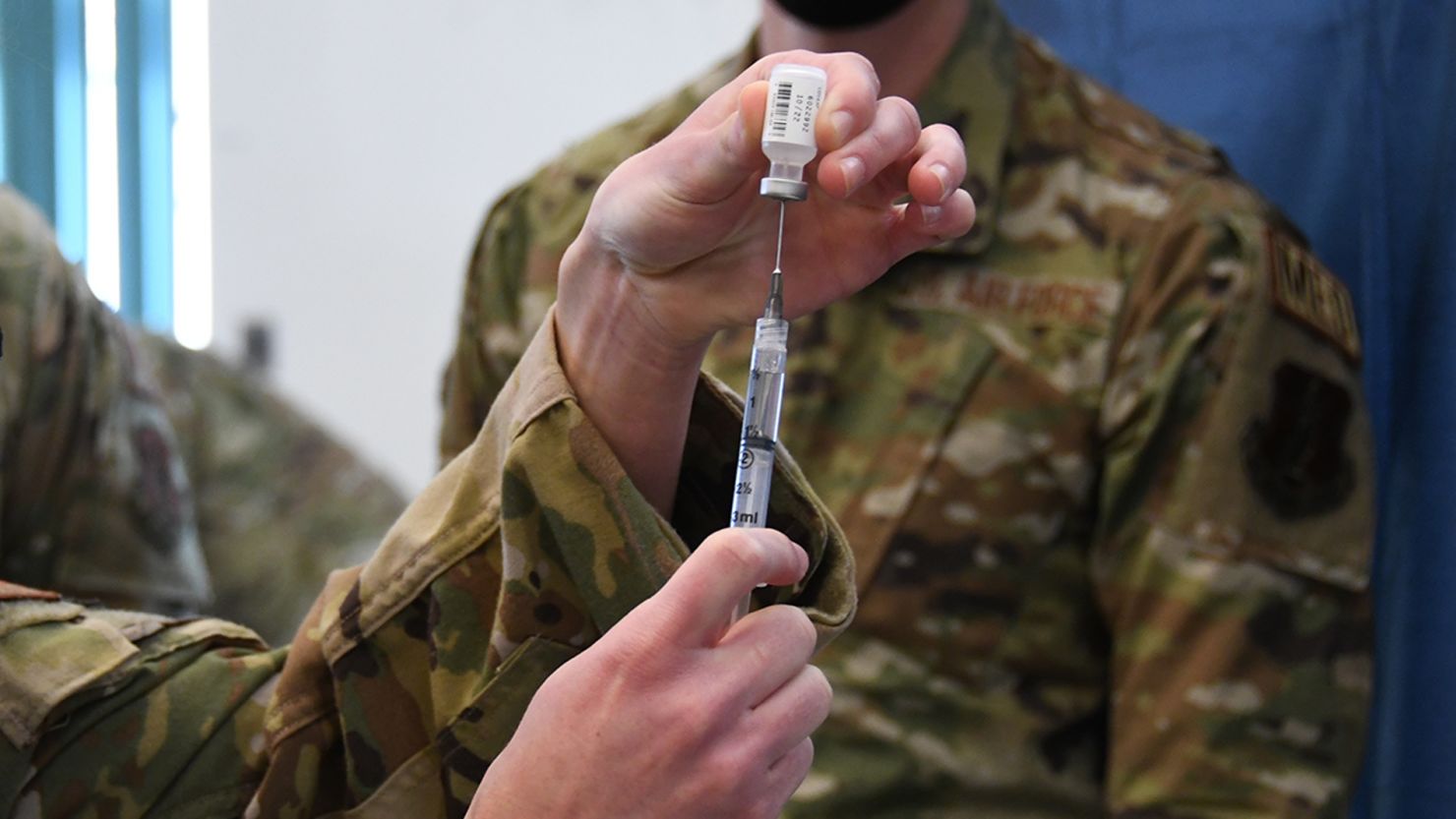Only 43 of the more than 8,000 US service members who were discharged from the military for refusing to be vaccinated against Covid-19 have sought to rejoin eight months after the vaccine mandate was officially repealed, according to data provided by the military branches.
Many Republicans argued that the vaccine mandate hurt military recruiting and retention efforts, which was part of the rationale for forcing the Defense Department to cancel the vaccine requirement. The military mandated the vaccine between for only 15 months from August 2021 through January 2023, when it was rescinded by law as part of the National Defense Authorization Act. It marked perhaps the first time in US military history that a vaccine requirement was reversed.
But since the repeal, only 19 soldiers have rejoined the Army, while 12 have returned to the Marines, according to service spokespeople. The numbers are even smaller for the Air Force and Navy, where only one and two have rejoined, respectively, the services said.
While Republicans have pointed to the vaccine mandate creating a retention issue, the Defense Department says all of the military services had surpassed their retention goals for the first 10 months of the 2023 fiscal year, which began on October 1, 2022. The services have exceeded retention goals even as the military has faced challenges in recruiting new service members.
J. Stephen Morrison, director of the Global Health Policy Center at the Center for Strategic and International Studies, described the numbers as “minuscule” and said, “it helps put the issue to bed, I hope.”
Defense Secretary Lloyd Austin mandated the vaccine for all service members after it received approval from the Food and Drug Administration. Some Republican lawmakers railed against the mandate, despite the Covid-19 vaccine being one of more than 15 vaccines required by the Defense Department.
Republican Sen. Tommy Tuberville, as part of the ongoing fight over his hold on more than 300 military nominees, insisted that the vaccine mandate had “damaged readiness” and “depleted the ranks” of the force.
In a letter he wrote earlier this month to the secretaries of the Navy, Air Force, and Army, the Alabama Republican said discharging thousands of service members also hurt military recruitment and retention.
In July, Republican Sens. Ted Cruz from Texas and Dan Bishop from North Carolina tried to introduce an amendment to the National Defense Authorization Act to reinstate service members “wrongfully discharged” over the vaccine mandate.
“I don’t think there was ever any real evidence that it was getting in the way of recruitment or retention,” said Morrison. “There was some grumbling, but you know the reality if you enter the military and you submit to a whole battery of different medical measures.”
But months after the vaccine mandate was repealed, only the smallest fraction of those discharged from the military have sought to return.
Experts speculated that younger troops may have left and found other career paths, while older service members may have seen it as a reason to accelerate retirement.
“Some people were already on their way out of the military, and they didn’t want to get the vaccine and they just didn’t care, and I think that may account for a significant portion of the individuals represented in the data,” said Kate Kuzminski, the director of the Military, Veterans, and Society Program at the Center for a New American Security.
Kuzminski said refusing the vaccine mandate may also have been a way out of the military for some service members who had no other way to break an otherwise binding commitment. Meanwhile, service members with more years of service may have found it difficult to explain a gap in their resume to a promotion board and decided not to rejoin.
“I don’t see this number jumping significantly,” said Kuzminski. “You might see ones and twos in the future.”

